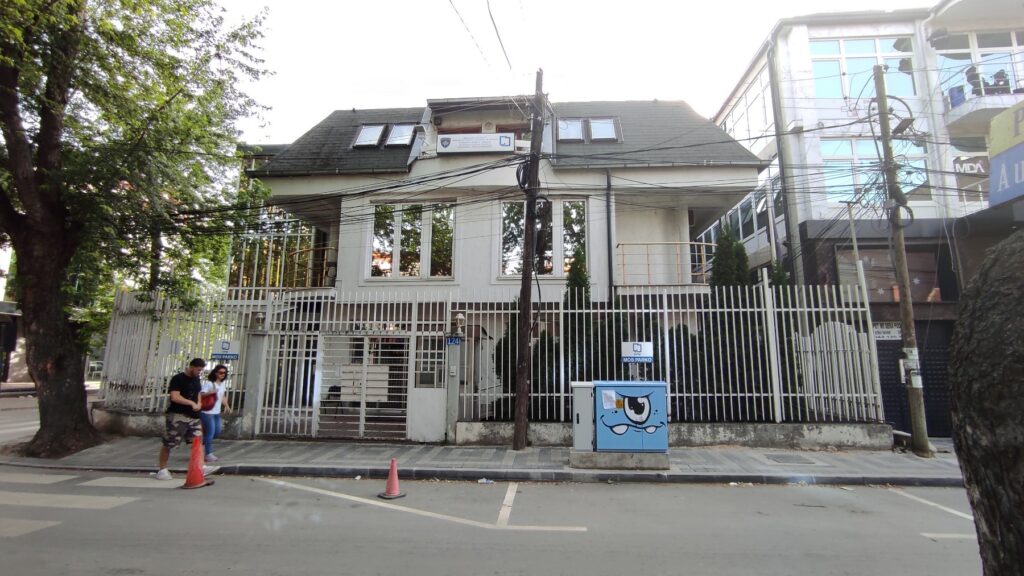The ICMM is an independent agency dealing with mining activities while its closest government partner, Kosovo’s environment, spatial planning and infrastructure ministry, provides the most services of any ministry – roughly 80. Not one of those services is fully available online, however.
On average, each service requires more than 11 separate documents, and applicants can sometimes wait three months for a response. And then there are the fees.
Kosovo has set a target of 2030 to fully digitalise public services in the hope of unleashing economic growth, but experts say it has a very long way to go.
“More than 340 services provided by all ministries in Kosovo require the submission of 2,250 documents in total,” said Albana Rexha of the Pristina-based think tank Democracy Plus, which has researched digital services. “More than 66 per cent of these services… require payment.”
Agron Demi, director of the NGO Balkan Green Foundation, said only 18.7 of services provide for documents to be submitted online. The rest require the applicant to be present. Demi blamed a lack of IT infrastructure, limited human resources and insufficient coordination between institutions.
Despite the government’s rhetoric, Demi said that “only a small number of services are fully accessible online, and many still require physical submission of documents”. All this, he told BIRN, “slows down progress”.
Ambition not matched by capacity

Kosovo’s government has identified digitalisation as a key priority, with a goal of digitalising most services at both central and local levels of government within the next three years and going fully digital by 2030.
“By 2030, Kosovo aims to become a modern digital country with an advanced digital economy and effective public administration,” said Genc Hamzaj, head of the Kosovo Information Society Agency, the institution responsible for developing and implementing information technology in the public sector.
Hamzaj told BIRN that roughly 200 e-services have been launched so far, with hundreds more in the pipeline.
“These additional services will be available by the end of this year and throughout 2025,” he said. “The services that are digitalised and offered through the eKosova platform are simplified and automated, requiring fewer documents. Most services on eKosova are free or available at a lower cost than those obtained in person at offices.”
Lulezon Jagxhiu, IT adviser to Prime Minister Albin Kurti, said the process cannot be rushed and that Kosovo is simultaneously working to make sure the digitalisation is secure.
“Currently, there are 658 services in the catalogue of central government services, and our goal is to digitalise 50 per cent of services by 2027 and to fully digitalize all services by 2030,” Jagxhiu said. “However, this process requires re-engineering of services, and it affects hundreds of laws and secondary legislative acts, so it takes time.”
He noted that the total number of service transaction via eKosova had nearly doubled 3.82 million in 2023.
As part of the country’s cybersecurity strategy, a Cybersecurity Agency is in the works. Kosovo has also developed an Interoperability Platform connecting more than 50 government systems and storing its data in the State Data Centre.
“We are also piloting an important reform of transitioning to life-event approach to service delivery, whereby digital services are organized and provided based on the significant life events of the citizens, such as the birth of a child or the opening of a business,” said Jagxhiu.
Last month, in its annual report on Kosovo’s progress towards European Union accession, the European Commission cited progress in cutting red tape and the digital transformation, but it said that the digitalisation of public services remains at an early stage.
Kosovo’s Commissioner for Privacy and Information also warned of a worrying side-effect – officials citing the digitalisation process to withhold documents from the public.
“Officials at all levels are obligated not only to provide access to documents but also to publish them proactively,” Krenare Sogojeva Dermaku told BIRN. “Officials are justifying this decline by citing the digitalisation process. In terms of transparency, this has worsened the situation.”

 Zagreb’s Clinical Hospital Centre was targeted by Russian hackers. Photo: kbc-zagreb.hr
Zagreb’s Clinical Hospital Centre was targeted by Russian hackers. Photo: kbc-zagreb.hr
 Photo illustration: EPA/RITCHIE B. TONGO
Photo illustration: EPA/RITCHIE B. TONGO












 Opposition Democratic Party MP Jorida Tabaku at a parliamentary session. Photo: LSA
Opposition Democratic Party MP Jorida Tabaku at a parliamentary session. Photo: LSA 









